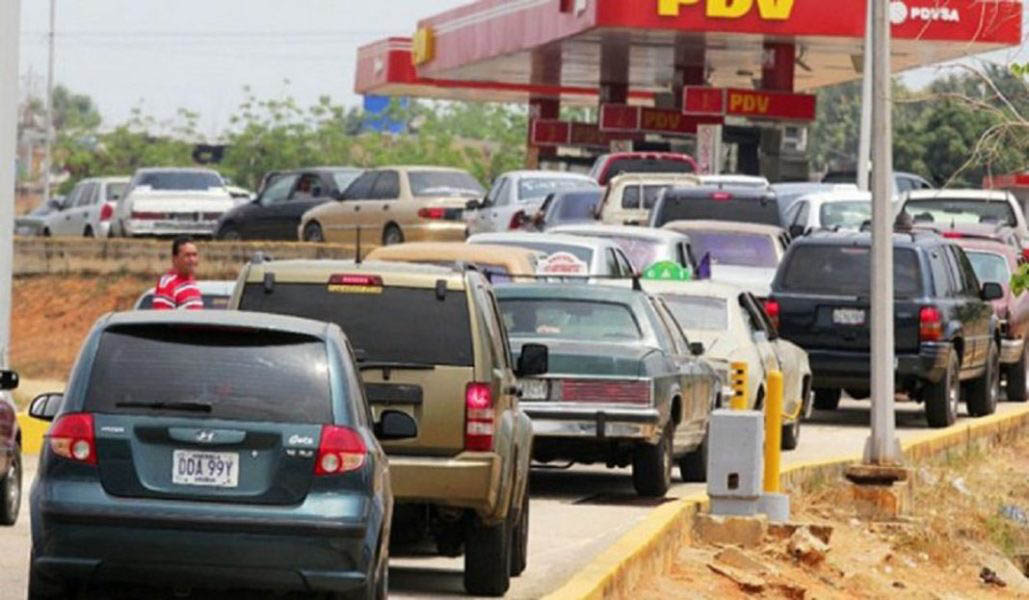The sight of Iranian gasoline tankers arriving off the coast of Venezuela to deliver desperately needed supplies of gasoline to the crisis-hit country would have been ‘a sight for sore eyes’ for Venezuelan motorists who had had to ‘live through’ a relatively short but traumatic gasoline shortage.
The trauma was entirely understandable. Venezuela reportedly possesses volumes of known oil reserves that are the largest anywhere and cheap gasoline is something that they have long come to take for granted. In that sense the sight of Iranian tankers bringing oil from the Middle East to South America, a circumstance over which US defence policy strategists in Washington must have been fretting, would have had a different effect on Venezuelans. It symbolized the beginning of what President Nicholas Maduro himself described as “the new normal”.
In one fell swoop Venezuelans have moved from benefitting from the world’s cheapest gasoline to having to purchase fuel at market prices. Worse, it comes against the backdrop of a protracted and crippling economic crisis resulting from relentless economic pressure from the Trump administration in the US to remove President Maduro from office.
The crazy shift in gasoline prices in Venezuela mirrors what the New York Times (May 15) calls the “irrational distortions” in what it says is the country’s “mismanaged and isolated economy,” though what is probably also true, is that the root of the problem reposes in the fact that Washington simply wants the Maduro administration out of office.
In global terms, Venezuela is an oil colossus. Setting aside its vast oil reserves, not believed to be matched anywhere else on earth, as far as we know, its state-run oil company, PDVSA, operates some of the world’s largest oil refineries, many built during the Hugo Chavez era of plenty. One reality which the US media frequently avoids like the plague is that Venezuela’s economic woes are, in significant measure, a function of American sanctions.
Reports from Caracas suggest that the delivery of what is not likely to be the last consignment of Iranian gasoline to Venezuela will probably do nothing more than make available, gas at the fuel pumps for a very limited period, perhaps a few months.
High unemployment and reduced earnings raises questions as to whether Venezuelans will be able to afford petrol at market prices, anyway. When account is taken of the knock-on effect of significantly higher gasoline prices on the other sectors, the cumulative effect becomes clearly apparent.
From reports emanating from Venezuela, the so-called ‘new normal’ includes hundreds of waiting cars around gas stations. “Some motorists sleep in their vehicles or pass the night huddled by their motorbikes on the highway to get a better chance when armed soldiers begin organizing chaotic lines at sunrise,” the May 15 New York Times, forever mindful of the impact of sensationalism, says.
Venezuela’s fuel woes amount to a considerable reversal of fortunes from its heady days of its Petrocaribe Agreement, reached fifteen years ago between eighteen Caribbean member countries and the then government of President Hugo Chavez and under which Venezuela provided those countries with oil supplies under a concessionary financial agreement.
Amidst their own current gasoline shortage woes, Venezuela has reportedly moved to snuff out cross-border fuel smuggling to various countries in the region from which Colombia and Guyana (specifically the gold-mining industry) benefitted.
If only because Venezuelans have, historically come to take ‘dirt’ cheap and even free gasoline for granted, the sudden change of fortunes could pose further problems for President Maduro’s government. Indeed, it will be recalled that a 1989 attempt by the then political administration in Caracas to raise fuel prices triggered riots that left many persons dead, a recollection that might have, up until now, stayed President Maduro’s hand in terms of fuel price rises. In the current circumstances he appears to have little choice though it cannot be ignored that free or cheap gasoline has traditionally been part of the ‘gift’ of the authorities to favoured institutions in the country, no least the military and the business community.
Apart from its positive response to Venezuela’s appeal for help with gasoline supplies, Iran has also reportedly sent technicians to the country to assist in the maintenance and repairs of its refineries.





